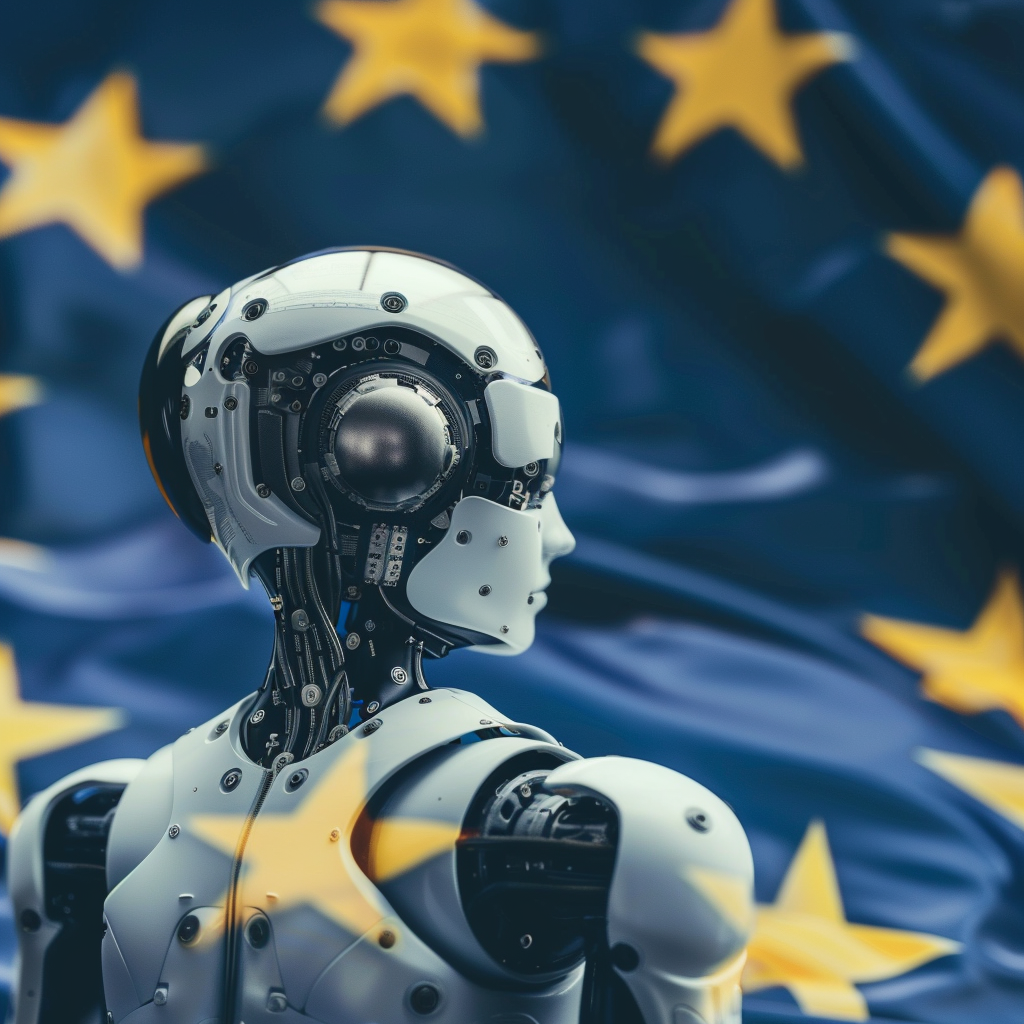The Dawn of a New Era: EU AI Regulations 2024 and Beyond
The Genesis of EU AI Regulations 2024: Understanding the Legislative Intent
The European Union’s AI Act is a pioneering step towards establishing a comprehensive legal framework for the development and deployment of artificial intelligence. As detailed by Holland & Knight, the AI Act introduces a risk-based approach, classifying AI systems into four distinct tiers. This nuanced strategy is designed to balance innovation with consumer protection, ensuring that as AI technologies evolve, they do so within the boundaries of ethical and legal standards.
The legislative intent is clear: to create a harmonized market for AI applications while addressing the potential risks associated with their use. With substantial penalties for noncompliance, including fines of up to €35 million or 7 percent of global turnover, the EU is sending a strong message about the seriousness with which it views the responsible use of AI.
The European Union’s AI Act: What You Need to Know – Holland & Knight
Impact of AI Laws on Tech Startups: Navigating the New Business Landscape
The advent of these regulations heralds a significant shift for tech startups. The impact of AI laws on these innovators cannot be overstated. As they strive to navigate this new business landscape, startups must be agile, adapting their development processes and business models to comply with stringent requirements.
The European Parliament’s support for innovation, as noted in the article from the European Parliament, is a silver lining. By offering startups and SMEs the opportunity to develop and train AI models before the law is fully enforced, the EU is nurturing a supportive ecosystem for emerging technologies.
EU AI Act: first regulation on artificial intelligence | Topics
AI Consumer Protection in Europe: Safeguarding Rights in the Digital Age
In the digital age, safeguarding consumer rights is paramount. The EU’s AI Act is a testament to this commitment, as it encapsulates provisions designed to protect consumers from the potential harms of AI. WilmerHale’s deep dive into Article 5 of the Act highlights the prohibition of AI systems capable of materially distorting human behavior, thereby upholding the integrity of personal autonomy in the face of advancing technology.
AI consumer protection in Europe is being fortified through these measures, ensuring that individuals are not manipulated or deceived by AI systems. The Act’s emphasis on transparency and accountability acts as a bulwark against the misuse of AI, fostering a safer digital environment for all.
Prohibited AI Practices—A Deep Dive into Article 5 of the European Union’s AI Act – WilmerHale
Challenges in Enforcing the New AI Regulatory Framework Across Member States
Enforcing a regulatory framework as sweeping as the AI Act across diverse member states presents its own set of challenges. The requirement for uniform application of the law, coupled with the need to respect the nuances of each member state’s legal system, creates a complex enforcement landscape.
The extraterritorial effects of the Act, as explained by Lexology, mean that even non-EU businesses must comply when engaging with the EU market. This global reach adds another layer of complexity to enforcement, demanding international cooperation and consistent regulatory practices.
The European Union’s AI Act: A Comprehensive Guide – Lexology
The Ripple Effect: How the EU’s AI Regulations Could Shape a Global AI Regulatory Framework
The EU’s AI regulations are poised to have a ripple effect beyond its borders, potentially shaping a global AI regulatory framework. The Act’s comprehensive nature and its focus on ethical considerations set a precedent that other nations might look to when crafting their own AI policies.
As international entities grapple with the implications of AI, the EU’s framework offers a blueprint for balancing innovation with ethical constraints. The global discourse on AI governance is likely to be influenced by the EU’s pioneering efforts, as countries seek to align with these emerging standards.
The European Parliament Adopts the AI Act – WilmerHale
Preparing for Compliance: Strategies for Ethical AI Development in the EU Market
As the 2024 deadline for the EU AI Act’s implementation approaches, businesses must prepare for compliance. Strategies for ethical AI development are not just a regulatory requirement; they are a cornerstone of sustainable and responsible business practices.
Understanding the Act’s categorization of AI systems and the associated obligations is the first step towards compliance. Companies must prioritize transparency, data quality, and human oversight to ensure their AI systems meet the high standards set by the EU.
For businesses seeking guidance on navigating these regulations, Bee Techy, a software development agency in Los Angeles, stands ready to assist. With expertise in ethical AI development and compliance, Bee Techy can help your business adapt to the EU’s AI landscape and thrive in this new era of digital innovation.
